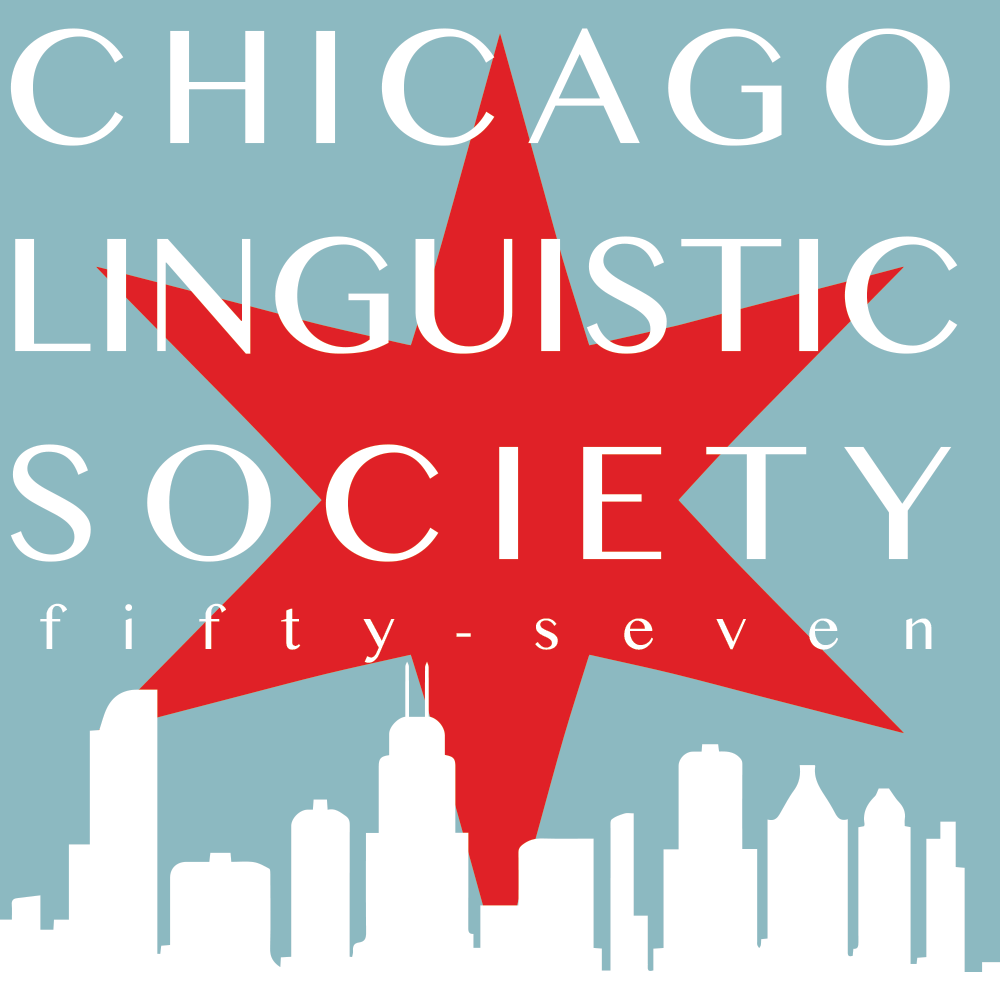
April 26 – April 28, 2024, at THE UNIVERSITY OF CHICAGO
Call Deadline: January 7, 2024 at 23:59 US Central Standard Time (GMT-6)
Call Deadline Extended: January 14, 2024 at 23:59 US Central Standard Time (GMT-6)
The Chicago Linguistic Society is the oldest student-run linguistics organization in the United States. This academic year, CLS will host its 60th annual meeting, which will be held from Friday, April 26 to Sunday, April 28, 2024. All presentations will be conducted in person at the University of Chicago.
The Chicago Linguistic Society invites abstracts in any area of linguistic research, including but not limited to syntax, morphology, semantics, pragmatics, sociolinguistics, phonology, phonetics, and all relevant interfaces and allied fields in cognitive/social sciences. We particularly encourage submissions relevant to this year’s proposed special sessions, detailed below. Presenters will be given 20 minutes for their presentation followed by a 10-minute question period. Presented papers will be published in the CLS proceedings. This year’s conference features a poster session; those presenting a poster may be chosen as alternates for talks. All talks and poster presentations will be published as regular papers in the proceedings.
We particularly encourage submissions relevant to this year’s proposed special topics:
Syntactic/semantic changes We welcome submissions that address diachronic changes in syntax and semantics. Topics of interest include shifts and patterns in word order, changes in alignment and argument structure, the relationship between information structure and word order, grammaticalization, the development of functional elements through the use of lexical items, semantic categorization and generalization, and inventory reduction resulting from semantic changes.
Language contact This session focuses on language/dialect contact, encompassing a wide range of topics including contact-induced linguistic changes, borrowing, code-switching, code-shifting, Pidgins and Creoles, and sociolinguistic mechanisms of language contact. We especially encourage contributions that bring innovative perspectives to loanword adaptation, pivot-matching in language convergence, diglossia, and societal multilingualism.
Balkan Languages Balkan languages, with their complex linguistic interplay, hold a pivotal role in linguistic studies. We welcome any submissions that explore the structural aspects of Balkan and neighboring languages and dialects from both synchronic and diachronic perspectives. Additionally, we encourage research on (micro)variations within these languages.
Negation and Polarity We welcome contributions that examine the manifestation of negation and polarity in diverse languages, both from a synchronic and diachronic perspective. Topics of interest include the morphosyntactic and semantic properties of negation, the role of polarity items and their distribution, the interaction of negation with other linguistic elements, the implications of negation for discourse, and the pragmatic aspects of negation and polarity.
Submissions that fail to comply with any of the following guidelines will be automatically rejected.
Extended Submission deadline: January 14, 2024 at 23:59 US Central Standard Time (GMT-6)
Notification: March 15, 2024
Conference dates: April 26 - April 28, 2024
The Chicago Linguistic Society is headquartered at the University of Chicago, which was built on the occupied and unceded lands ancestrally stewarded by many Native peoples. These include the people of the Council of Three Fires (the Ojibwe, Potawatomi, and Odawa nations) as well as the Menominee, Kickapoo, Miami, Sac and Fox, and Ho-Chunk nations. Today, Cook County is home to 39,000 Native people representing more than 100 tribal nations.
Please email us at chicagolinguisticsociety.cls60@gmail.com for any questions or issues that may arise.